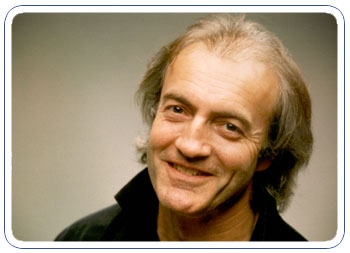

















Title: Design for the World Narrow Web
Abstract:
It is easy to get lost in the enthusiasms of the moment. In the process, we tend to forget yesterday, much less 5 years ago. The thing to remember, however, is that tomorrow will be as different from today as today's blogs, your/my/his/her-face, RSS etc. are from the old days of alt.net.foobar.
No new news here.
So what does happen when browsers almost disappear, and search as a distinct application is nothing more than a quaint memory?
If the notion of ubiquitous computing was right, we won't be thinking of web applications and services as software applications. The diversity of "web browsers" tomorrow will match the diversity of "ink browsers" (a.k.a. paper) today - in terms of diversity of form, function, location, and importance. It will be hard to decouple the "application" from the device, and the device from the location. And this, in turn, will accelerate the move towards the strong-specific from the weak-general approach to things that prevails today. And in all of this, the perceptible "web" that dominates the experience will more likely be the network that makes up the "society of devices" within the immediate physical context within which the interaction takes place.
In this context, the challenges of "social computing" will have as much (or more) to do with understanding, defining and exploiting the social mores of such "societies of devices" as it does with the social relationships of the people interacting over the network.
These changes are going to force us to rethink our current assumptions about usage, as well as the economic and technological underpinnings of the web.
Does this talk reveal all? No way! But besides asking questions and making assertions that may or may not be right, it does speak to how we can think about such things so that we might make some progress towards preparing for what is coming - whatever it is.
Biographical Information:
Bill Buxton is a designer and a researcher concerned with human aspects of technology. His work reflects a particular interest in the use of technology to support creative activities such as design, film making and music. In December 2005, he was appointed a Principal Researcher at Microsoft Research. Prior to that, he was Principal of his own Toronto-based boutique design and consulting firm, Buxton Design. He also has an association with Bruce Mau Design of Toronto, where he is honorary Chief Scientist. As well, he is an Associate Professor in the Department of Computer Science at the University of Toronto, where he still works with graduate students.
Buxton, who began his career in music, has spent more than 30 years observing how people use technology and applying those insights to the human-computer interaction field. His research specialties include technologies, techniques and theories of input to computers; technology-mediated collaboration between people; and ubiquitous computing. Buxton is widely revered for his creative and sensitive explorations of new user-interface techniques spanning audio, speech, two-handed input, keyboards, menus, lenses, pens, augmented reality, multimedia and more.
In 1995, Buxton received the Canadian Human-Computer Communications Society Achievement Award for his contributions to research in computer graphics and human-computer interaction. He also was selected as the New Media Visionary of the Year at the 2000 Canadian New Media Awards, and the Hollywood Reporter named him one of the 10 most influential innovators in the North American film industry in 2001.
